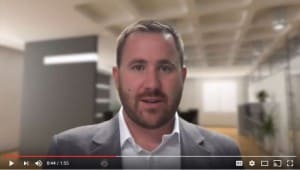In this week’s International Association of Interviewers interview and interrogation training tip provided by Wicklander-Zulawski, Dave Thompson, CFI wants to talk about the importance of listening to your subject’s denials. Both an innocent person and a guilty person may provide denials to you as the interviewer. Before you ever enter into the situation, however, it’s important that you’ve done a thorough investigation. We want to prevent tunnel vision or confirmation bias, when we’re only looking for a confession during the interview.
If a subject is providing a denial, it’s important to listen to the type of denial and how they gave it. If somebody says “I didn’t do it,” that might be different than “I wouldn’t do it”–which might be different than, “That’s impossible. That’s not the kind of person that I am.” Sometimes a subject may be offering you additional facts or information that might help your case.
We also have to understand the fact that a guilty person may also try to say they didn’t do it, to protect themselves. Our job as the investigator is not to seek a confession and not to put somebody in a position where that’s their only option. Our job is to get as much information as possible so that we can better see the truth and provide a resolution to the case. Sometimes what you need to do is listen to your subject because they might help you in figuring out what direction might be best.
Every loss prevention investigator should continuously strive to enhance their investigative interviewing skills as part of an ongoing commitment to best-in-class interviewing performance. This includes holding ourselves to an elite standard of interview and interrogation training that is ethical, moral and legal while demanding excellence in the pursuit of the truth. The International Association of Interviewers (IAI) and Wicklander-Zulawski (WZ) provide interview and interrogation training programs and additional guidance to investigators when dealing with dishonest employees, employee theft, sexual harassment, policy violations, building rapport, pre-employment interviewing, lying, denials and obtaining a statement.
By focusing on the latest information and research from experts in the field as well as academia, legal and psychological resources, these video tips provide interview and interrogation training techniques that can enhance the skill sets of professionals with backgrounds in law enforcement, loss prevention, security, asset protection, human resources, auditors, or anyone looking to obtain the truth.
To learn more about interview and interrogation training and how you can further develop your professional skill sets, visit www.w-z.com or www.certifiedinterviewer.com.
